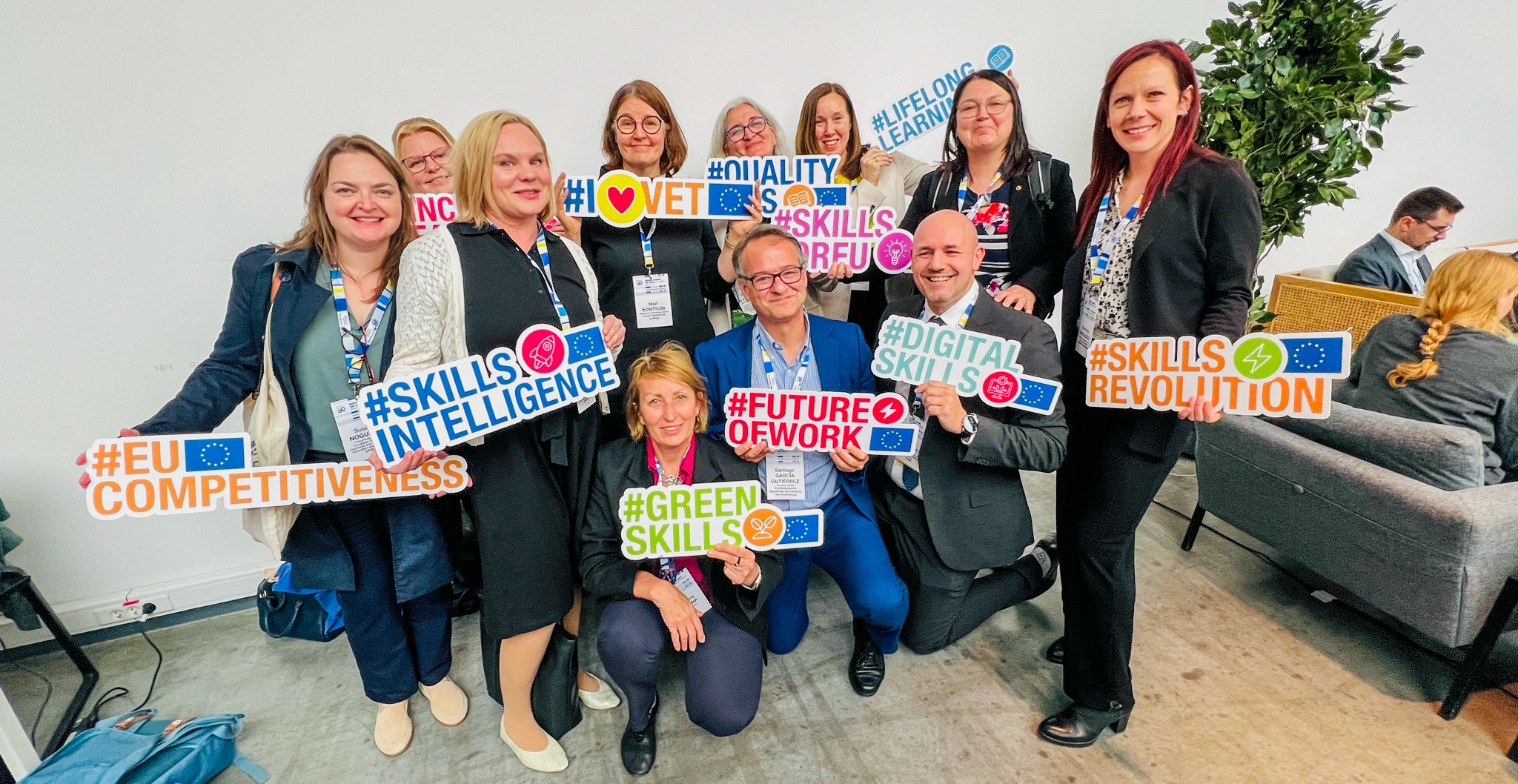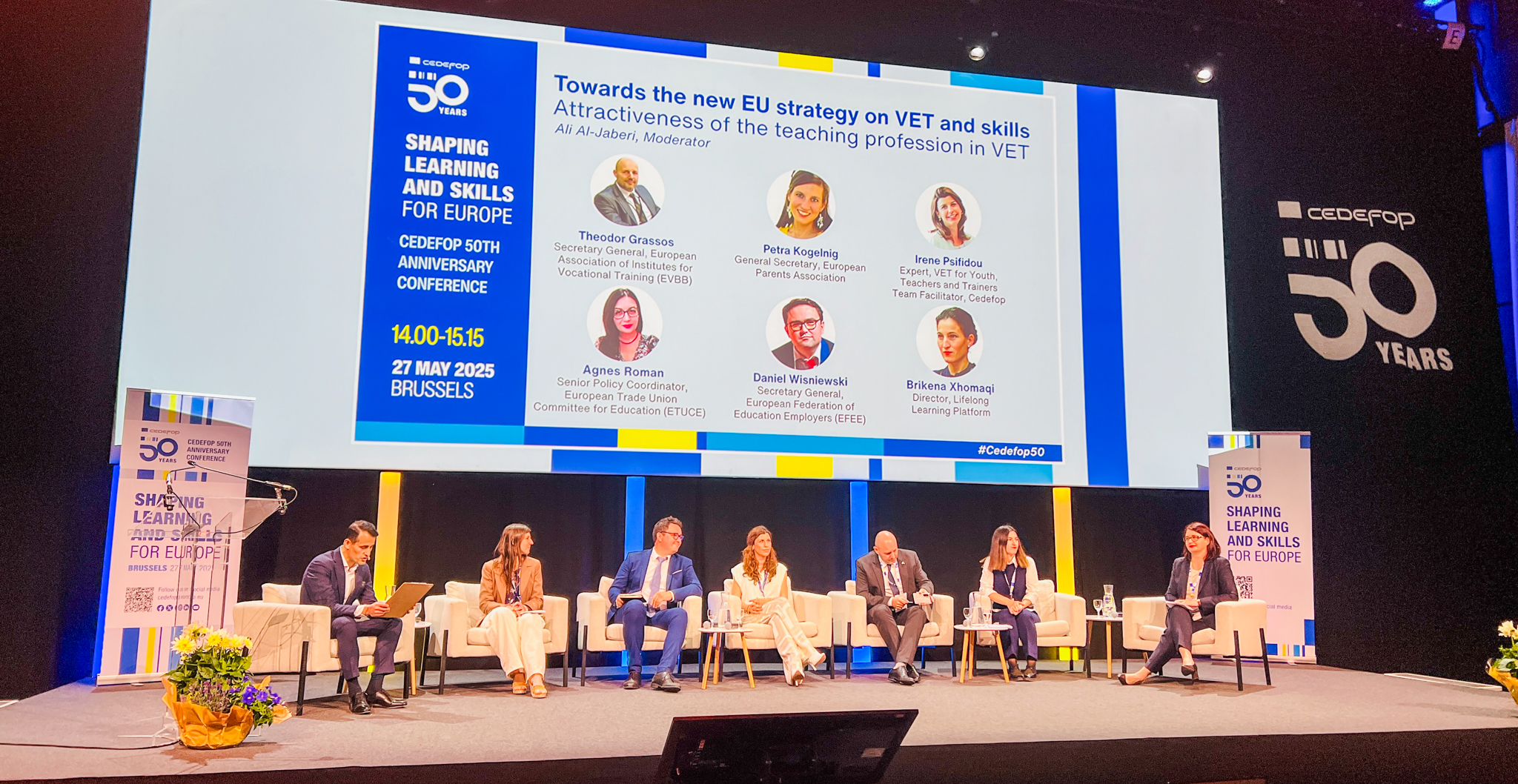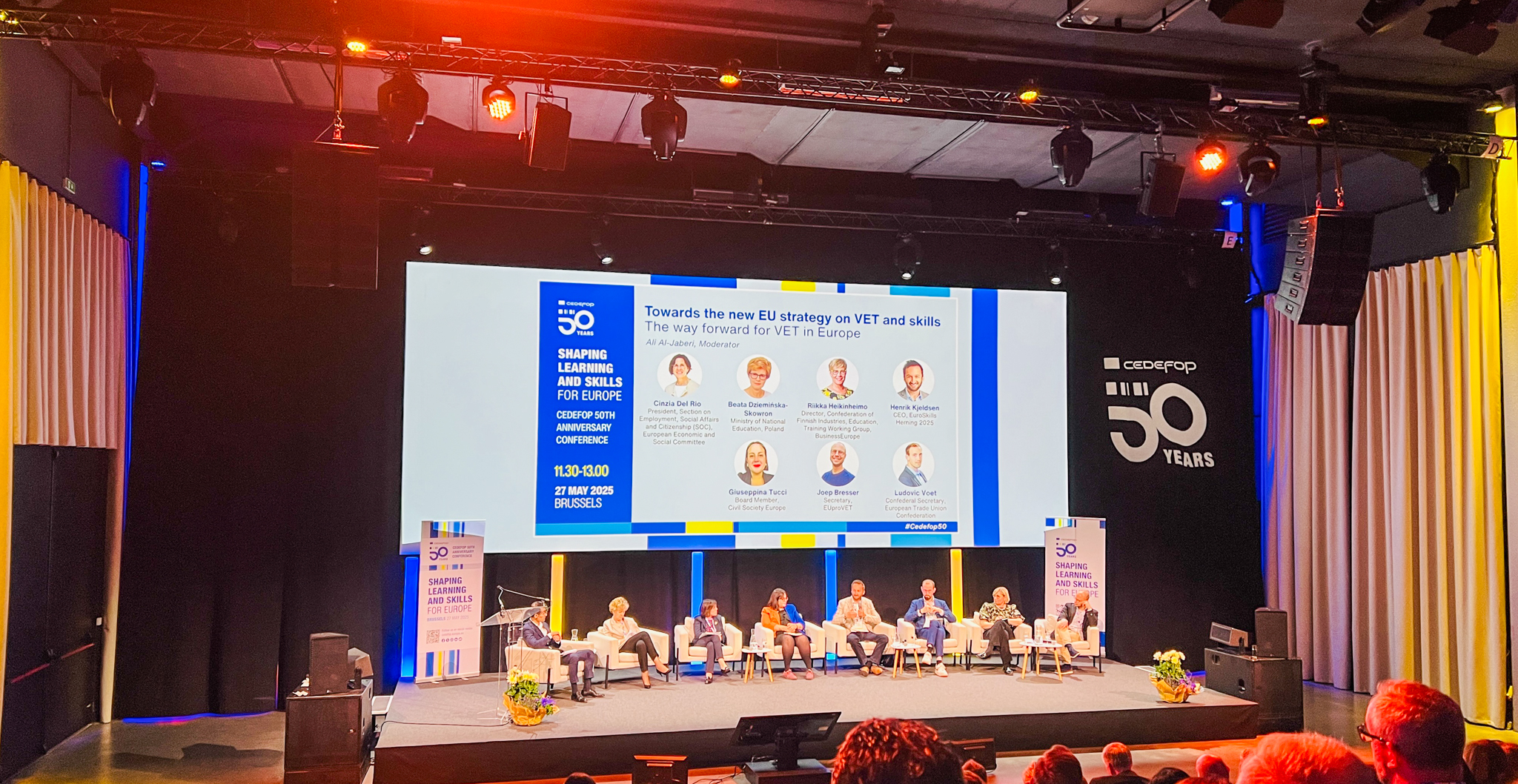
Brussels, 27 May 2025 – EfVET attended Cedefop 50th Anniversary Conference: “Shaping learning and skills for Europe”, which brought together high-level policymakers, education and training experts, and social partners to align skills intelligence and development with Europe’s competitiveness agenda.
From the European Year of Skills to the newly launched Union of Skills initiative, the EU is strengthening its capacity to equip workers and businesses with the right skills for the digital and green transition.
The conference brought together over 250 key stakeholders to provide actionable insights on Europe’s evolving skills and education landscape. By leveraging Cedefop’s skills intelligence, discussions focused on how VET, upskilling, reskilling and lifelong learning can reinforce Europe’s unity and social cohesion.

Key insights from the event:
- Next-generation skills intelligence stands as a vital tool for informing policy and supporting effective VET and skills developments.
- Presentation of the new EU strategy on VET and skills: challenges of implementing EU priorities for VET
- Open discussion on the attractiveness of the teaching profession
- The future of European policies and Cedefop’s role: insights in an evolving landscape of European policies.
With keynote speeches from EU Commission representatives, Members of the European Parliament, social partners and policy makers, the conference served as a strategic forum for shaping next-generation policies that connect skills and competitiveness. Participants also had the opportunity to connect with key stakeholders, including the AILEEN project, the IFAPME Walloon Institute, WorldSkills International, EuroSkills Herning 2025 and Project Management Methodologies.

Cedefop will soon launch a new EU Skills Observatory which, among other aspects, will support connecting skills with labour market demands, and connecting policy/advocacy with the real needs of the VET sector.
The main results of this conference conclude that there is an urgency in education that can be tackled by providing the VET sector required tools to adapt to labour market needs and technological and societal developments.






